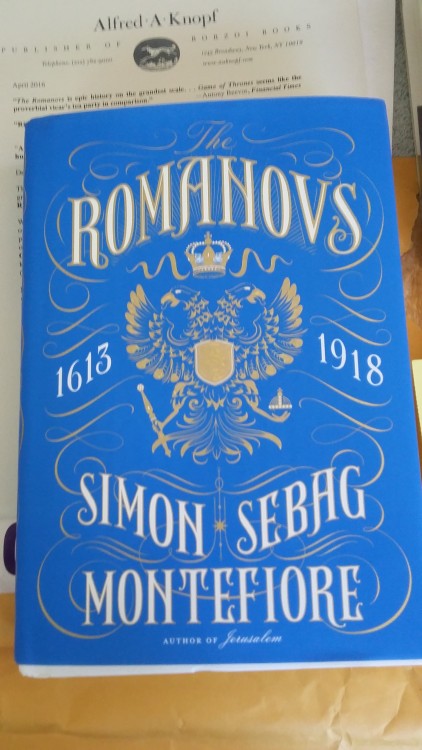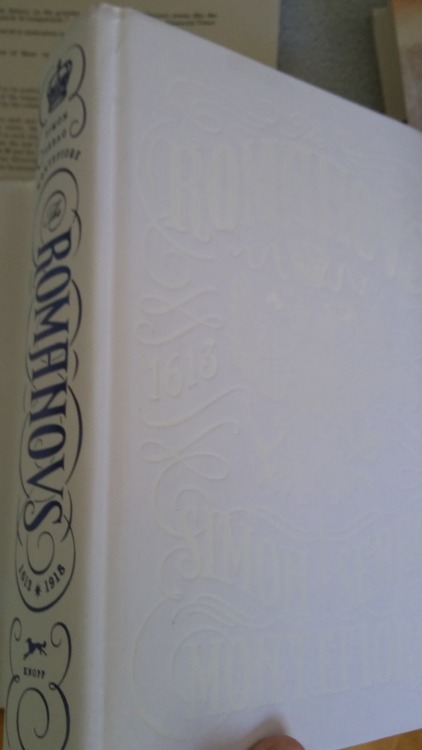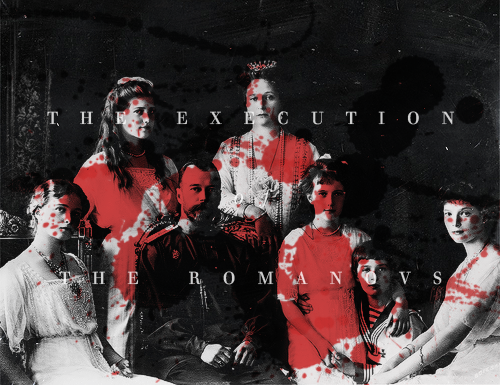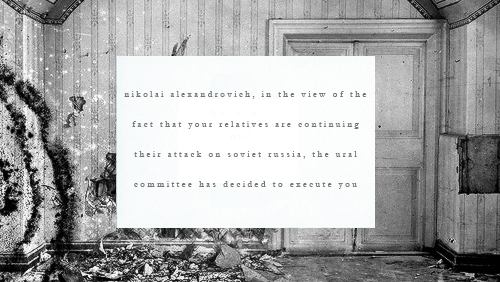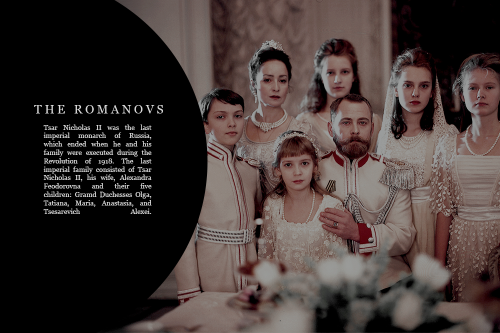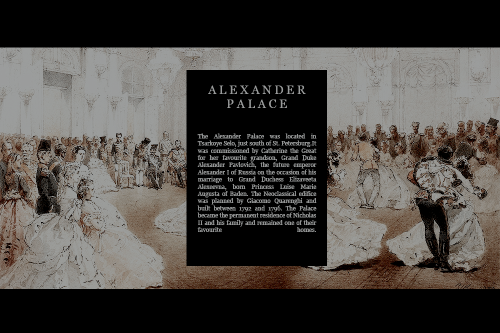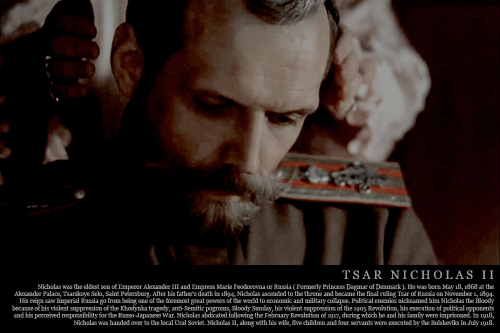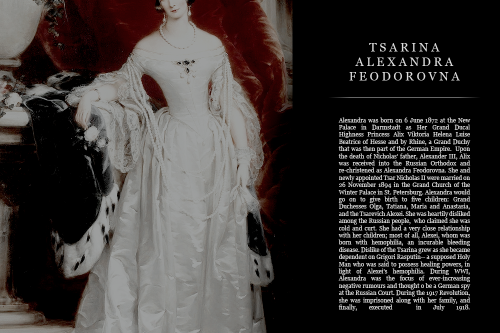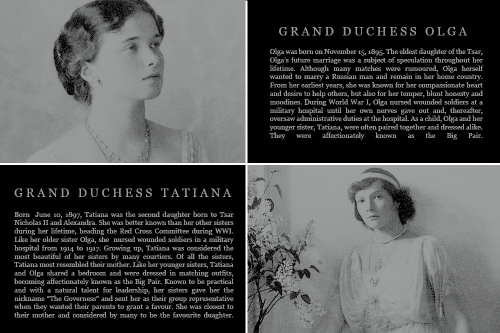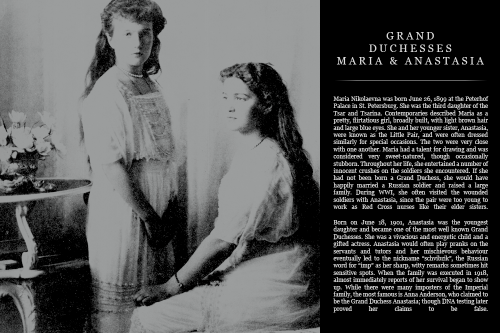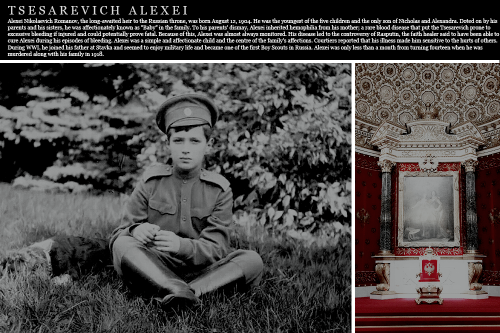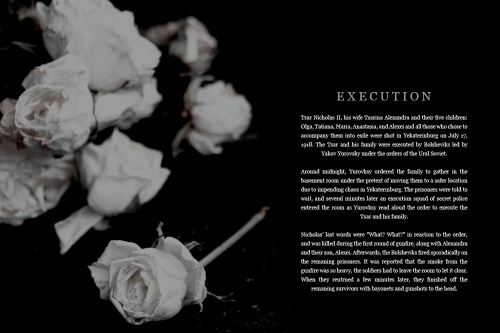#the romanovs
I’ve been looking forward to reading this book for several months, but I also want to point out how cool-looking it actually is. It’s kind of difficult to see in the photo, but the actual hardcover of the book has an embossed version of the book jacket graphics. Nobody makes better-looking books, aesthically, than Knopf.
The Romanovs: 1613-1918(BOOK|KINDLE) by Simon Sebag Montefiore is available on May 10th.
Post link
history meme - (1/5) assassinations
The execution of the Romanovs (17 July 1918). Tsar Nicholas II of Russia was forced to abdicate in March 1917, and following his abdication, he and his family were put in house arrest at the Alexander Palace in St Petersburg. As civil war broke out in Russia, it was decided in August 1917 that the Romanovs should be moved from St Petersburg to Tobolsk in Siberia citing protection of the family as the reason for the move. As the Bolsheviks continued to gather strength, the Romanovs were to be moved once more - this time to the Ipatiev House in Ekaterinburg in the Urals in April/May 1918. In July 1918, the advancing White Army made the Bolsheviks anxious and they eventually decided to murder the family and their servants.
In the early hours of 17 July 1918, the family was awakened, told to get dressed, and was led down into a half-basement room at the back of the Ipatiev House (“The House of Special Purpose”). The Romanovs were told that there was commotion in the streets of Ekaterinburg and the move was made for safety reasons. A firing squad had been assembled and was waiting in an adjoining room. Once the family had settled in the room, the Bolshevik officer Yarov Yurovsky announced to them that had been condemned to death by the Ural Soviet of Workers’ Deputies. Nicholas managed to ask “What? What?” before the family was showered in gun shots and eventually all eleven people had been killed. It is said that the four grand duchesses had to be finished off with bayonets as they had sewn their remaining jewellery in their blouses which deflected the bullets (+more).
Post link

Tilsit date. Napoleon, Alexander I, Louise and Frederick William III of Prussia’ by Nikolas Gosse, 1807

“I feel like I’m entering the Fatherland,” Charlotte told the mourners as her carriage crossed the Russian border. The Cossack convoy that met her burst out “Hurrah!”, the princess told them in Russian: “Thank you, guys.” Then she turned to the Cossack colonel: “Please order them to shout again, I like it…” She sought to speak Russian with those courtiers who did not know foreign languages. However, despite the fact that her teacher was the poet Vasily Zhukovsky, Charlotte did not learn Russian until the end of her life.


«She never left the children brought up in her institutions afterwards, but helped them all her life, went into all the details that concerned them, and was a true mother to everyone. None of those who served her died in the palace except in her presence. She comforted everyone to the end and always closed the eyes of the dying. Doctors once told her that her retired lady-in-waiting, who lived on Vasilievsky Island, was suffering greatly from breast cancer, that it would be possible to save her, but she did not agree to the operation otherwise than if the Empress herself would be present during her production. “Well,” she said, “if only her recovery depends on it, then I will fulfill her wish.” She went to her and held her head during the whole operation.
She went into the smallest details about her establishments and not only supervised the upbringing of the children, but also did not forget to send them treats and give them all sorts of pleasures. One boy was forced to stay in bed for a long time due to illness; she brought him drawings, pencils and various things. With every courier she was informed about the state of his health — she was in Moscow at the time. When appointing honorary guardians, the choice was the strictest: she corresponded with each of them herself weekly, inquired about the pupils and pupils, about their behavior and health, and always gave wise humane advice … Everything was invented by a tender heart for the benefit, joy and peace of all who depend on her. It was not a dry, lifeless patronage, but maternal care. But her arrival at the institute was a real holiday. Maman, mam an, Mutterchen — could be heard from everywhere. Sometimes, at a big dinner, she would order dessert to be taken off and sent to some institute in turn. And she asked guardiansin her testament to remember that the first basis of all actions should be a boon!Babies abandoned by their mothers enjoyed her special attention. One day my father, who always accompanied her when she visited institutions, expressed surprise that she so tenderly kissed the little members of these unfortunate people, examined the laundry on the nurses and so on. “Ah!” she replied, “all these abandoned children are now mine and must find in me the care they are deprived of."»
(с) Maria Sergeevna Mukhanova, lady-in-waiting of Empress Elizabeth Alexeievna.


«Весёлая царица была Елисавет, поет и веселится, порядка только нет…»
«A cheerful tsarina Yelisaveta was, she sing and having fun, but there is no order…»
From the poem of Count Aleksey Konstantinovich Tolstoy.


«Princess Louise…she combined inexpressible charm and grace with restraint and tact, quite rare at the age of fourteen. In all her actions, the result of her mother’s worries, both respected and beloved, was visible. Her mind, soft and delicate, grasped with extreme rapidity everything that could decorate it, like a bee that knows how to get honey from the most poisonous plants. Her conversation reflected the freshness of her youth, and to this she added a great correctness of concepts.»
© Countess Varvara Nikolaevna Golovina about princess Louise of Baden, future Russian Empress Elizabeth Alexeievna.






«The Empress with the medical staff went around the wounded, provided first aid, tried in every possible way to ease the sufferings of the sick, despite the fact that she herself had a damaged arm above the elbow and she wore just a dress. An officer’s greatcoat was thrown over the shoulders of the tsarina, in which she walked along the crashed train…»
A. Myasnikov about Empress Maria Feodorovna on the day of the tragedy at the Borki station.
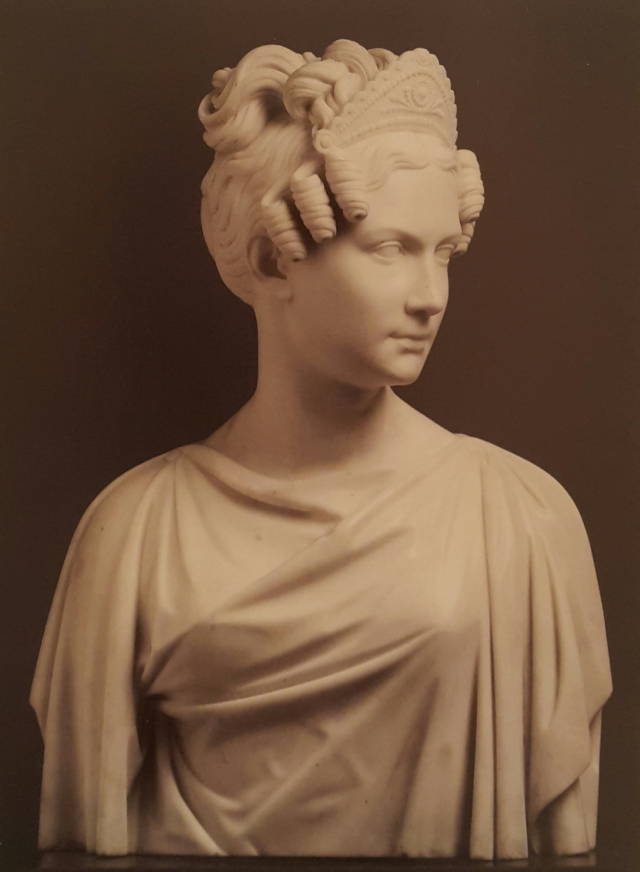
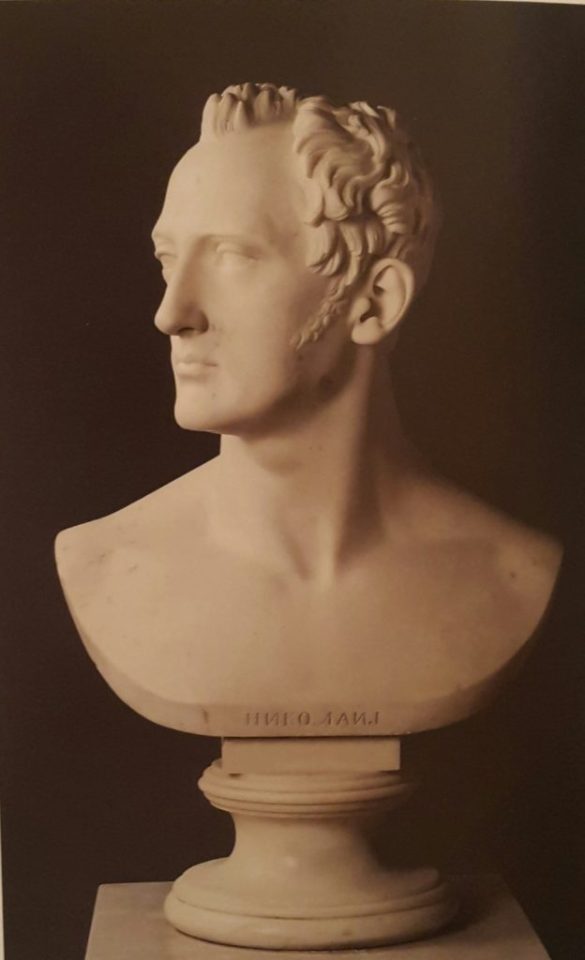
Busts of Emperor Nicholas I of Russia and Empress Alexandra Feodorovna


Grand Duke Nicholas Mikhailovich of Russia to Maria Feodorovna, «Various facts from November 12 to November 19, 1916»
Count Gudovich told me that his niece, the little Countess Hendrikova, told him that two ladies, i.e., A.F. (Alexandra Feodorovna) and Anya (Anna Vyrubova), had notebooks where the names of people of all classes were written alphabetically, and that in these notebooks they usually looked for people fit to be ministers. Admit that this is pure madness. There is only one remedy, Sandro and Pavel do not mind, it is for the closest, for you and your children to take the initiative to conduct a medical consultation of all our celebrities from a medical point of view, and then send them to a remote sanatorium, with or without Vyrubova, to undergo serious treatment. Otherwise, be prepared for any accidents. Tell that to Sandro-because that’s my firm opinion.
Grand Duke Nicholas Mikhailovich of Russia to Maria Feodorovna, «Various facts from December 17 to December 22, 1916»
The balding man writing to you has been thinking a lot, spending sleepless nights, running around the empty St. Petersburg embankments at dawn — and now he tells you — never look for the names of the brave souls who performed this act of civic courage, high patriotism and deliverance*. The word is silver, and silence is gold!
Madame (Alexandra Feodorovna) is madder than ever. On the night of the 19th, after the autopsy of the corpse, the order came to transport… the body of the insignificant to the emperor’s palace!!!
Two more appointments to positions took place under the influence of the murdered man …
Madame is getting more and more in charge of drowning Nicky… And time passes, gossip intensifies, the general situation inspires fears.
I’m putting the same dilemma before you again. After the hypnotist, it is necessary to try to neutralize A.F., while she is hypnotized. By all means, it is necessary to send her as far away as possible, either to a sanatorium or to a monastery. We are talking about saving the throne - not the dynasty, which is still strong, but the present sovereign. Otherwise it will be too late. … All Russia knows that the late Rasputin and A.F. are the same. If the first one is killed, the second one should disappear. The general peace of mind depends on it. …
*about Rasputin’s murder


«Oh, they (OTMA) were lovely, and terribly sweet, far more beautiful than their photographs show. I was crackers about Marie, and was determined to marry her. She was absolutely lovely. I keep her photograph in my bedroom- always have.»
Mountbatten: Hero of Our Time by Richard Hough.




«She (Maria) was strikingly similar to her father, and her gaze resembled his scary gaze. The daughter bravely endured her father’s gaze. He turned pale, his cheeks trembled, and his eyes became even fiercer, his daughter answered him with the same look. Everything turned pale and trembled around, the ladies-in-waiting and the generals did not dare to breathe from this cannibal duel with their eyes… Nicholas got up, he felt that he has met his match.»
My Past and Thoughts by Alexander Herzen


«I have the honor to be Russian, I am proud of it, I will defend my homeland with my tongue, quill, and sword - as long as I have enough life…»
© Catherine the Great






The curse of the Romanovs
Part I

